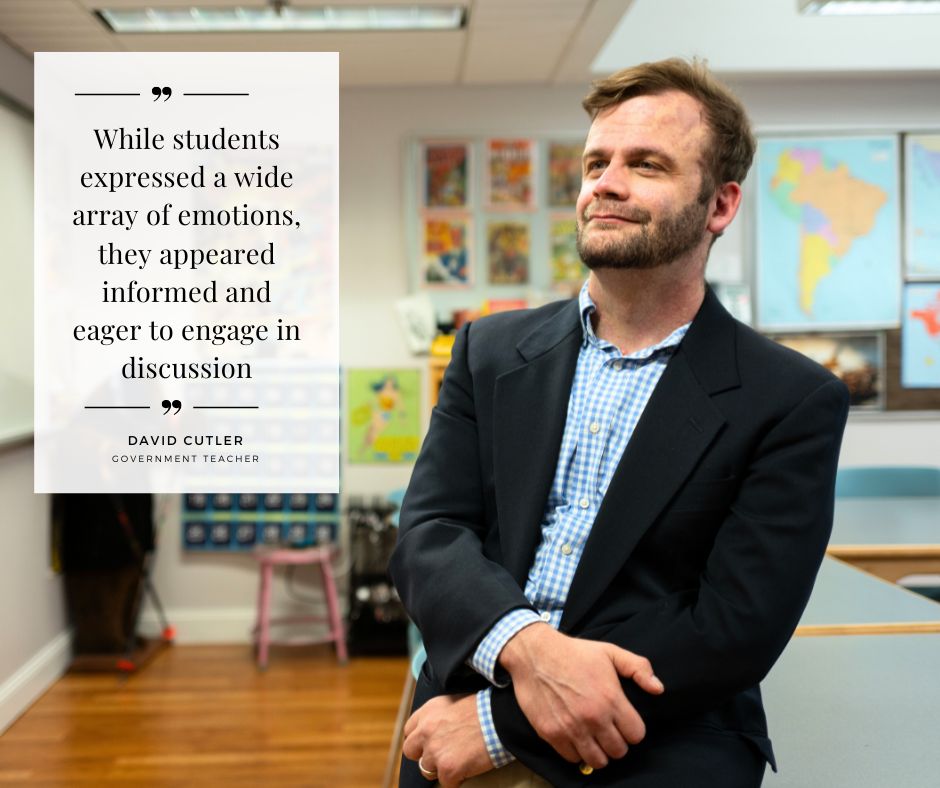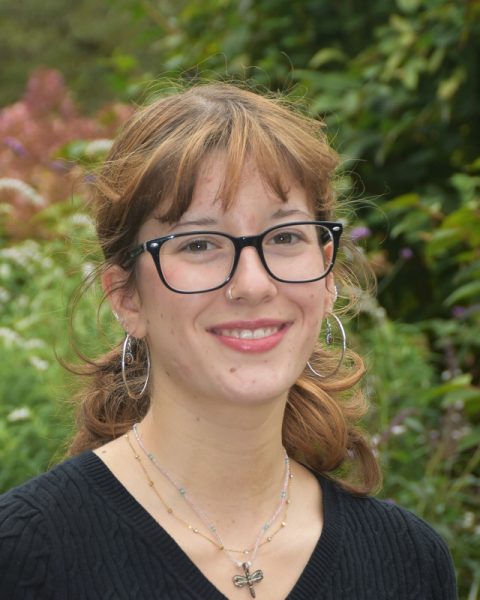Thursday, at lunch, Math Teacher Pete Slaski and History Teacher Dave Cutler hosted an optional lunch for students to discuss the election. Only five or six of the 164 Upper School students attended the meeting.
According to Slaski, the lunch hosted for the middle school was better attended.
Slaski and Cutler started off the conversation by sharing data on the Electoral College votes with the students and asking them why they thought Vice President Kamala Harris lost the election.
Slaski emphasizes that he and Cutler wanted to give as much space to the students to speak as possible, rather than guide the conversation.
Patrick Whalen ’25 attended the meeting and noted that the students could agree on why Harris could not win, despite their different political perspectives.
“We had a good discussion,” Whalen said. “It was nice and civil.”
However, he acknowledged that some people got emotional about the deeper issues at stake in the campaign.
“There was lots of emotion from both sides, but I think Mr. Cutler and Mr. Slaski did a good job explaining what happened, why it happened, and where we go from here,” Whalen said.
Whalen mentioned no interruptions, making the space more like a conversation than a debate.
Cutler notes that he was inspired by the thoughtful questions regarding presidential powers, checks and balances, and public influences the students who attended the meeting asked.
“While students expressed a wide array of emotions, they appeared informed and eager to engage in discussion,” Cutler said.
He emphasizes that students are always encouraged to speak with him about the election and their viewpoints.
Slaski shares a similar viewpoint as Cutler.
“We just wanted to provide a place for students to express how they were feeling,” Slaski said.
Giulia Laurenza ’25 also attended the lunch and found the presence of the faculty helpful.
“It was good that Mr. Slaski was there to offer objective data and help Mr. Cutler speak clearly about these issues,” Laurenza said.
However, Laurenza felt a certain amount of tension in the room between people with differing political opinions.
“I got a sense from some people that they were just trying to prove they were right,” Laurenza said.
Laurenza added that having an adult woman in the room would have been helpful during the part of the discussion where they discussed women’s rights.
Slaski notes that he wouldn’t change anything about the meeting but wished there had been better attendance. However, he acknowledges that the lunch was voluntary and students should not have been forced to attend.























































